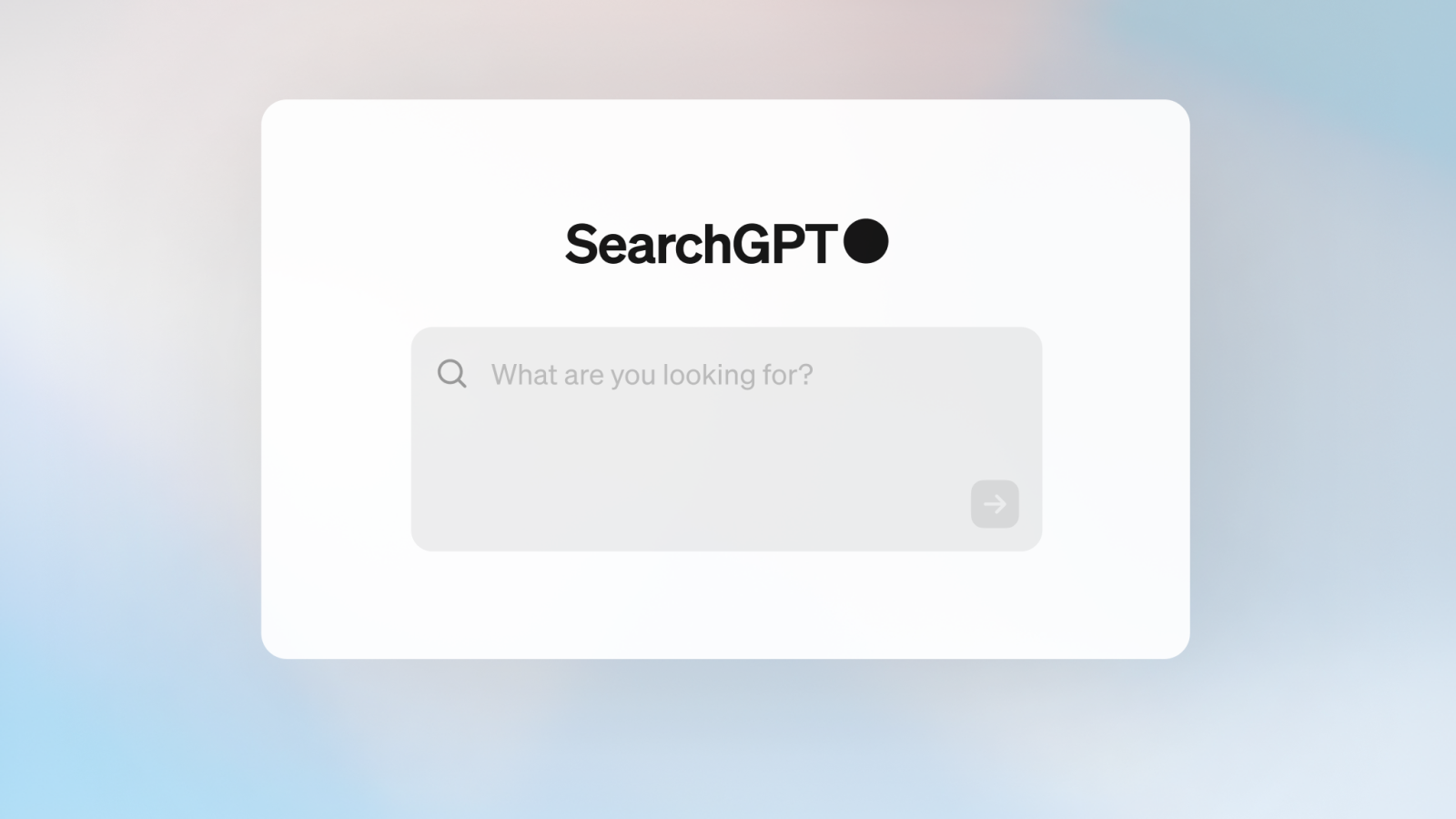
Search GPT: Navigating the Future of Search Engine Optimization SEO
In today’s rapidly evolving digital landscape, the emergence of AI-driven search engines like Search GPT is reshaping how businesses approach search engine optimization (SEO). As traditional search engines like Google face new challenges, optimizing for AI-driven platforms is becoming increasingly essential for maintaining a strong online presence. In this article, we'll explore what Search GPT is, why it matters, and how to effectively optimize your content for this new wave of AI-powered search technology.
What is Search GPT?
Search GPT is an advanced AI-powered search engine developed by OpenAI, designed to rival the dominance of Google and Bing. Unlike traditional search engines that focus on providing a list of links, Search GPT delivers detailed, conversational responses to user queries. This shift toward AI-driven search represents a significant change in how information is accessed and presented online.
Key Features of Search GPT:
Conversational UI: Search GPT’s user interface is designed to encourage longer, more conversational search queries. Users are prompted with questions like, “What are you looking for?” This approach is a departure from the short, keyword-based searches typical of Google.
Detailed Summaries: Instead of simply displaying a list of links, Search GPT provides in-depth summary answers to user queries. This feature is similar to Google’s AI Overview or featured snippets but with a more comprehensive and user-friendly approach.
Ad-Free Experience (For Now): During its initial rollout, Search GPT has remained ad-free, offering users an uninterrupted experience. This could change in the future, but for now, it’s a significant differentiator from other search engines.
Seamless Follow-Up Questions: Search GPT allows users to ask follow-up questions that build on previous queries. This capability makes it easier for users to dive deeper into topics and find the information they need.
Why Search GPT Matters for SEO
The introduction of Search GPT underscores the importance of preparing for AI-driven search technologies and the broader shift toward a more fractured search landscape. With Google facing antitrust challenges and alternatives like Search GPT gaining traction, businesses need to diversify their SEO strategies to stay ahead.
Why This Matters:
Changing Search Behavior: The conversational nature of Search GPT encourages users to ask more detailed, natural language questions. This change in search behavior requires businesses to rethink how they create and structure content.
Focus on Content Quality: With Search GPT prioritizing in-depth, accurate responses, the quality of your content becomes even more critical. High-quality, well-researched content is more likely to be featured prominently in Search GPT’s results.
Diversification of Search Platforms: As AI-driven search engines like Search GPT grow in popularity, relying solely on Google for visibility is no longer viable. Businesses must optimize for a broader range of search platforms to maintain and grow their online presence.
Optimizing Your Website for Search GPT
To effectively optimize your website for Search GPT and similar AI-driven platforms, consider the following strategies:
1. Focus on High-Quality Content:
Content quality has always been a cornerstone of SEO, but with Search GPT, it’s more important than ever. Ensure that your content is:
- Comprehensive: Cover topics in-depth, providing detailed answers and explanations. Search GPT favors content that thoroughly addresses user queries.
- Accurate: Fact-check your content and include citations where necessary. Accuracy is crucial for maintaining credibility and ranking well in AI-driven search engines.
- Engaging: Write in a way that captures the reader’s attention and encourages further exploration of your content.
2. Optimize for Conversational Keywords:
Given Search GPT’s focus on natural language processing, it’s essential to incorporate conversational keywords and phrases into your content. Use tools like Ubersuggest to identify long-tail keywords that align with the way users are likely to phrase their queries.
3. Leverage User-Generated Content (UGC):
User-generated content, such as reviews, testimonials, and forum posts, can be a valuable asset in optimizing for Search GPT. This type of content provides authentic user experiences that can be directly cited by AI models. Encourage your customers to leave reviews and share their experiences to boost your content’s relevance.
4. Enhance Your Brand’s Digital PR:
Building a strong online presence is crucial for being recognized by AI-driven search engines like Search GPT. Invest in digital PR strategies to acquire brand mentions, features in reputable publications, and positive reviews. The more your brand is mentioned and recognized, the higher the likelihood of being recommended by Search GPT.
5. Optimize Your Content Structure:
AI models like Search GPT favor content that is well-structured and easy to digest. Organize your content with clear headings, subheadings, and bullet points where appropriate. However, avoid overusing bullet points; instead, aim for a balanced mix of paragraphs and lists to ensure readability.
6. Incorporate Schema Markup:
Schema markup helps search engines understand the content and context of your web pages. By implementing schema, you can improve your chances of being featured in Search GPT’s detailed summaries. Structured data is especially valuable in a world where AI is increasingly used to interpret and present information.
7. Keep Your Content Fresh and Up-to-Date:
Regularly updating your content signals to search engines that your site is active and relevant. This is particularly important for Search GPT, which prioritizes fresh and timely information. Include publish dates and last updated dates to reinforce the recency of your content.
8. Utilize Expert Commentary and Reviews:
Incorporating expert opinions and reviews into your content can enhance its credibility and authority. Search GPT is more likely to feature content that includes insights from industry experts or detailed reviews that add value to the user’s experience.
The Future of SEO in a Search GPT World
As Search GPT and other AI-driven search engines continue to evolve, the SEO landscape will undergo significant changes. To succeed in this new environment, businesses must be proactive in adapting their strategies to meet the demands of AI-powered platforms. By focusing on content quality, optimizing for conversational search, and diversifying across multiple search platforms, brands can ensure their visibility and success in the future of search.
Conclusion
The rise of Search GPT marks a pivotal moment in the evolution of search engine optimization. As AI-driven technologies gain prominence, businesses must adapt to stay competitive. By optimizing for Search GPT and embracing a “Search Everywhere” approach, brands can secure their place in the future of search and continue to thrive in a rapidly changing digital landscape.



